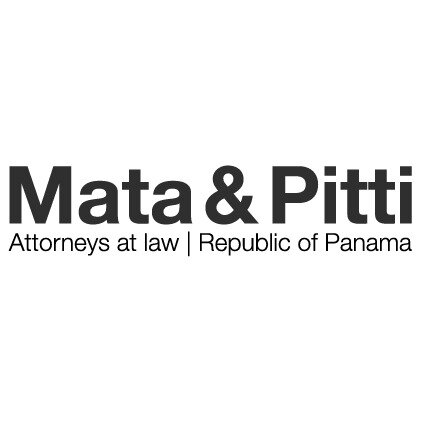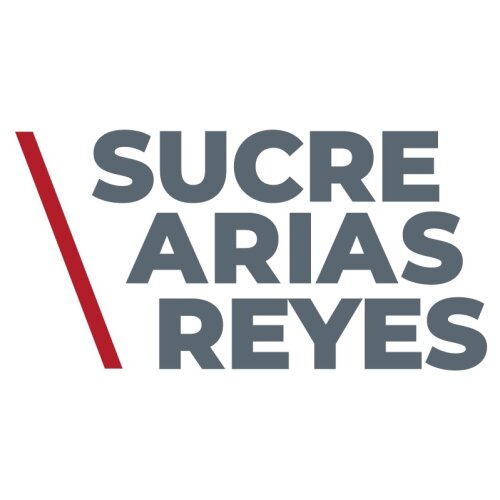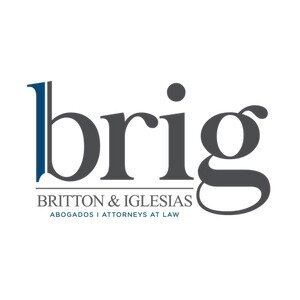Best Mining Law Lawyers in Panama City
Share your needs with us, get contacted by law firms.
Free. Takes 2 min.
List of the best lawyers in Panama City, Panama
About Mining Law in Panama City, Panama
Mining Law in Panama City, and in Panama as a whole, governs all legal aspects surrounding the exploration, extraction, and commercialization of mineral resources. This area of law regulates the rights and responsibilities of individuals, companies, and government agencies involved in mining activities. Given Panama's wealth of natural resources, especially its significance in regional mining operations, adherence to Mining Law is critical for compliance, investment protection, and environmental stewardship. Mining Law covers everything from obtaining permits and concessions to environmental management and community relations.
Why You May Need a Lawyer
Mining projects, whether small-scale or large-scale, involve complex legal frameworks. Here are some common situations where legal expertise in Mining Law can be beneficial:
- Obtaining mining concessions or permits from Panamanian authorities
- Negotiating contracts with landowners, government entities, or mining partners
- Ensuring compliance with environmental regulations and labor laws
- Resolving disputes over land access, royalties, or indigenous rights
- Managing the legal aspects of mergers, acquisitions, or joint ventures in the mining sector
- Providing due diligence for potential investors or buyers
- Defending against administrative sanctions or legal claims from affected communities
- Handling regulatory compliance and reporting obligations
A qualified mining law attorney can help safeguard your interests, minimize risks, and navigate Panama's complex regulatory landscape.
Local Laws Overview
Panama's mining sector is regulated primarily by the Mining Code (Codigo de Recursos Minerales), Law No. 109 of 1973, and subsequent amendments and regulations. The Ministry of Commerce and Industries (Ministerio de Comercio e Industrias, MICI) is the main authority overseeing mining activities. Key aspects of local Mining Law include:
- Concessions and Permits: All mineral exploration and extraction require a concession, granted through a formal process. These concessions stipulate the terms, duration, and obligations of the concession holder.
- Environmental Protection: Mining operations must comply with environmental regulations, including Environmental Impact Assessments (EIA) overseen by the Ministry of Environment (MiAmbiente). Failure to do so may result in project suspension or cancellation.
- Royalty Payments and Taxes: Concession holders must pay royalties and taxes based on production levels and mineral types, according to Panamanian tax law.
- Land Use and Community Rights: Laws protect the rights of landowners and indigenous communities, often requiring consultation and agreements prior to initiating mining activities.
- Labor Regulations: Mining companies must comply with Panamanian labor laws regarding worker safety, wages, and conditions.
It is crucial to understand these elements before engaging in any mining-related activity in Panama City or elsewhere in Panama.
Frequently Asked Questions
What is required to obtain a mining concession in Panama?
Applicants must submit a formal request to the Ministry of Commerce and Industries (MICI), provide technical and financial information, and conduct required public consultations. The process involves background checks and the submission of an Environmental Impact Assessment for approval.
Who is eligible to apply for mining concessions?
Both Panamanian and foreign individuals or companies can apply for mining concessions under Panamanian law, subject to compliance with necessary requirements and local regulations.
Are there limitations on foreign ownership in the mining sector?
Panama does not generally restrict foreign ownership of mining concessions, but all applicants must comply with the same legal and environmental standards.
What environmental obligations do mining operators have?
Mining operators are required to carry out Environmental Impact Assessments, implement mitigation measures, and obtain permits from the Ministry of Environment. They must regularly report on environmental performance and can face penalties for violations.
How are indigenous and local community rights protected?
Panamanian law requires companies to consult with indigenous and local communities before commencing projects in their territories, respecting their rights and seeking agreements on land use and benefit sharing.
What taxes and royalties must mining companies pay?
Mining companies must pay royalties based on the volume and value of extracted minerals, as well as corporate taxes. The exact rates depend on mineral type and production scale.
Can a mining concession be revoked?
Yes, the government can revoke concessions for non-compliance with legal, environmental, or contractual obligations, or if the concession holder fails to start operations within the specified time.
What are the main regulatory bodies for mining activities?
The Ministry of Commerce and Industries (MICI) is the lead authority, supported by the Ministry of Environment and local municipal entities for certain approvals and oversight.
How are mining-related disputes resolved?
Disputes may be resolved through administrative processes, local courts, or international arbitration if stipulated in contracts. Legal counsel is advised for navigating these procedures.
Is illegal mining a concern in Panama?
Yes, illegal mining activities occur and are subject to enforcement actions by national authorities. Penalties include fines, confiscation of equipment, and possible imprisonment.
Additional Resources
If you are seeking more information or assistance related to Mining Law in Panama City, consider contacting the following:
- Ministry of Commerce and Industries (MICI): Main body regulating mining concessions and licenses.
- Ministry of Environment (MiAmbiente): Responsible for environmental permits and monitoring.
- Panama Bar Association: Can provide referrals to qualified Mining Law attorneys.
- Chamber of Commerce, Industries and Agriculture of Panama: Offers business resources and legal contacts in the mining sector.
- Local law firms specializing in natural resources and environmental law.
Next Steps
If you require legal assistance in Mining Law:
- Gather all relevant documents such as contracts, permits, and correspondence.
- Consult with a Panamanian attorney who specializes in Mining Law to review your case or project.
- Prepare questions regarding permits, compliance, or potential disputes for your legal advisor.
- If you are a foreign investor, consider obtaining a local legal representative to act on your behalf with authorities.
- Regularly monitor regulatory updates that may affect mining laws and environmental regulations in Panama City.
Understanding and complying with Mining Law in Panama is essential for successful operations and risk mitigation. Professional legal guidance ensures you are protected and compliant throughout your mining venture.
Lawzana helps you find the best lawyers and law firms in Panama City through a curated and pre-screened list of qualified legal professionals. Our platform offers rankings and detailed profiles of attorneys and law firms, allowing you to compare based on practice areas, including Mining Law, experience, and client feedback.
Each profile includes a description of the firm's areas of practice, client reviews, team members and partners, year of establishment, spoken languages, office locations, contact information, social media presence, and any published articles or resources. Most firms on our platform speak English and are experienced in both local and international legal matters.
Get a quote from top-rated law firms in Panama City, Panama — quickly, securely, and without unnecessary hassle.
Disclaimer:
The information provided on this page is for general informational purposes only and does not constitute legal advice. While we strive to ensure the accuracy and relevance of the content, legal information may change over time, and interpretations of the law can vary. You should always consult with a qualified legal professional for advice specific to your situation.
We disclaim all liability for actions taken or not taken based on the content of this page. If you believe any information is incorrect or outdated, please contact us, and we will review and update it where appropriate.
















